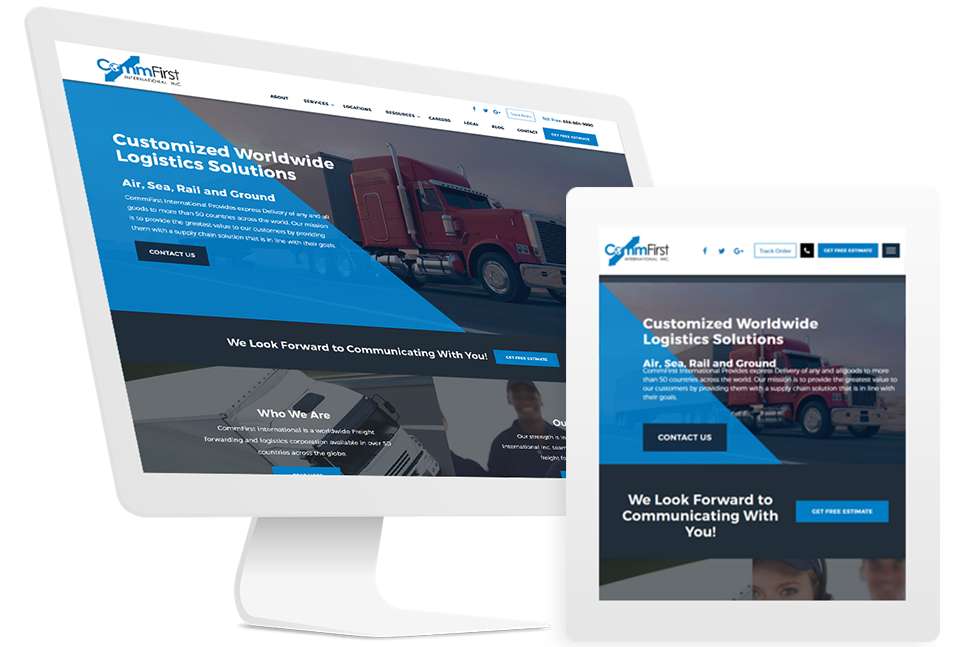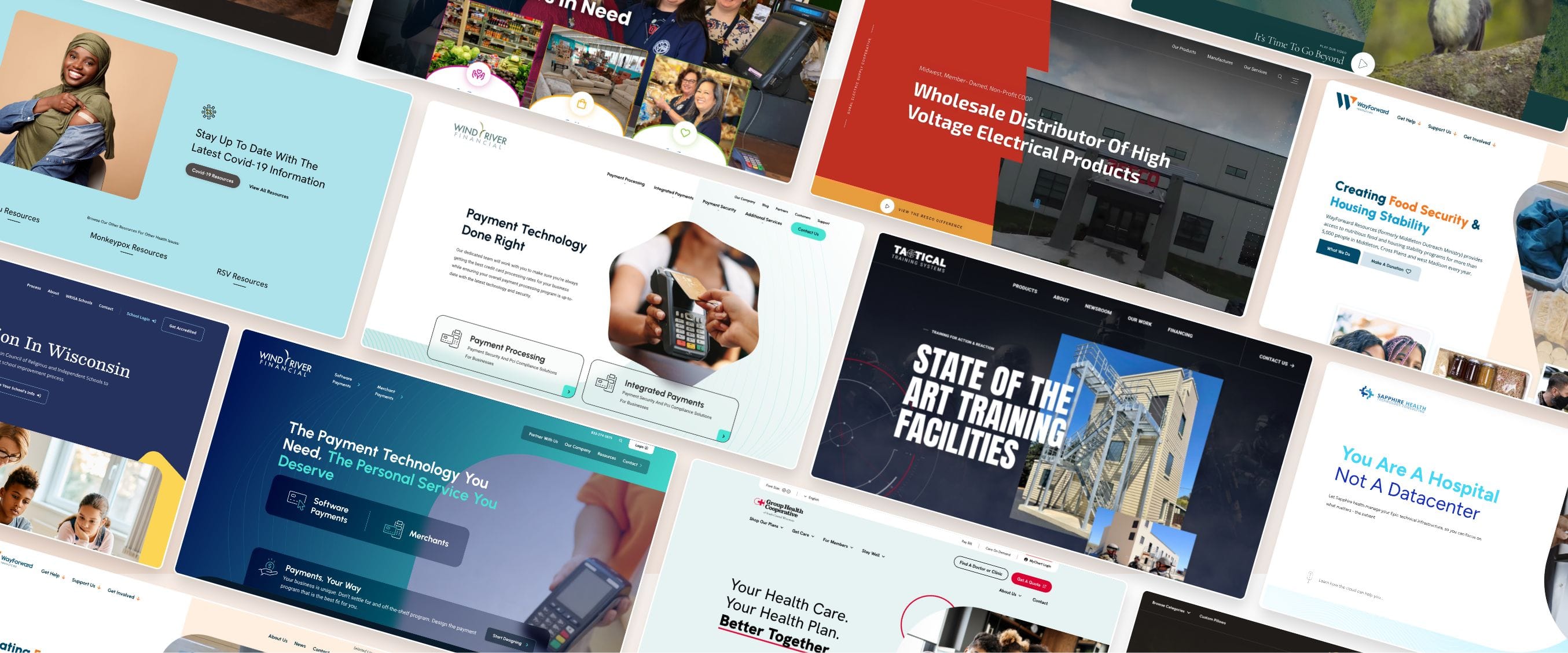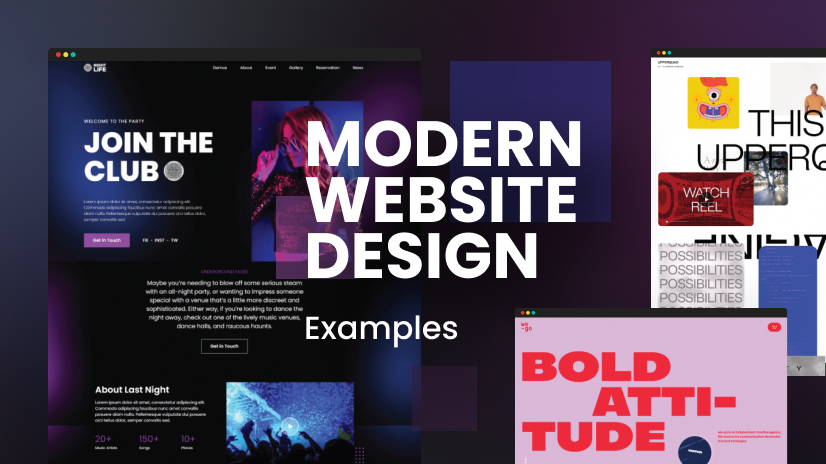Comprehensive Website Design Services for Small Businesses
Comprehensive Website Design Services for Small Businesses
Blog Article
Top Tips for Producing an Impactful Web Site Layout That Converts
In today's digital landscape, the importance of an impactful web site design can not be overstated, especially when it involves converting site visitors into consumers. To attain this, one need to take into consideration a selection of factors, including recognizing the target audience, prioritizing customer experience, and enhancing for mobile platforms. Additionally, the tactical usage of compelling call-to-actions and a well-defined visual power structure plays a vital function in guiding customers with their journey. As we check out these vital components, it becomes obvious that the success of your web site depends upon more than just aesthetic appeal; it requires a thoughtful strategy to layout and functionality.

Understand Your Target Market
Recognizing your target audience is fundamental to efficient site layout, as it prepares for creating an interesting customer experience. Identifying who your customers are, including their demographics, preferences, and actions, makes it possible for designers to tailor the internet site's content, format, and performance to meet details demands.
Performing extensive market study is essential in this process. Surveys, meetings, and analytics can provide useful insights into individual assumptions and pain factors. By compiling this data, designers can develop user characters that stand for various sections of the audience, ensuring that layout decisions are educated and relevant.
In addition, recognizing the target market helps in choosing appropriate layout components such as color pattern, typography, and images that reverberate with customers. A website that talks straight to its target market promotes a feeling of connection and count on, urging longer visits and higher conversion prices.
Eventually, a user-centered method to site style not just improves user complete satisfaction but also supports business goals by driving involvement and loyalty. By focusing on the demands and preferences of the target market, a web site can properly offer its function and accomplish preferred outcomes.
Prioritize Customer Experience
To improve the general efficiency of an internet site, focusing on individual experience (UX) is necessary (Website Design). A properly designed UX ensures that site visitors can browse the website effortlessly, find details rapidly, and involve with content meaningfully. This leads to boosted individual fulfillment and higher conversion prices
Begin by implementing user-friendly navigation. Menus ought to be practically structured, allowing users to locate crucial areas of the website with very little initiative. Consistency in layout elements, such as color pattern and fonts, cultivates knowledge, which is crucial for keeping individual interaction.
Furthermore, consider the packing speed of your web site. A hold-up of simply a few seconds can result in significant drop-offs, as individuals are much less most likely to wait for a slow-loading web page. Streamlining pictures and maximizing code can boost efficiency and retain site visitors.
By prioritizing customer experience, you not only create a much more enjoyable environment for site visitors however likewise strengthen your brand's reputation. Ultimately, an emphasis on UX is a he has a good point financial investment in the long-term success of your web site.
Maximize for Mobile Devices
Enhancing for smart phones is important in today's electronic landscape, where an enhancing variety of individuals access web sites via smart devices and tablet computers. A mobile-friendly style not only boosts individual experience yet also plays a substantial function in boosting internet search engine rankings. To achieve this, it is necessary to embrace a receptive design that immediately gets used to different screen sizes and orientations.

Filling speed is another important factor; mobile customers are generally less individual and expect fast access to information. By focusing on mobile optimization, you ensure that your site stays affordable and effectively engages a more comprehensive target market.
Use Engaging Call-to-Actions
A site's performance typically rests on its capability to assist visitors towards wanted actions, making engaging call-to-actions (CTAs) necessary parts of design. CTAs offer as the essential factors that direct individuals to engage with the website, whether that implies purchasing, authorizing up for an e-newsletter, or downloading and install a source.
To create reliable CTAs, clearness is paramount. Usage succinct Website Design language that plainly communicates the action you desire the customer to take. Expressions such as "Begin," "Join Free," or "Shop Now" not just communicate seriousness but likewise eliminate obscurity. The positioning of CTAs is just as essential; they should be purposefully positioned throughout the website to guarantee they are conveniently visible, especially in high-traffic locations.
Additionally, take into consideration making use of directional signs, such as arrows or images, to assist customers toward these switches. By focusing on these aspects, organizations can considerably enhance user engagement, driving conversions and inevitably achieving their internet site's goals.
Concentrate On Visual Power Structure
Effective website style depends greatly on a well-structured aesthetic pecking order that guides individuals through web content perfectly. By arranging elements in a manner that prioritizes details, developers can improve user experience and assist in decision-making. This includes using size, color, contrast, and spacing strategically to draw focus to one of the most vital components of a page.
Using bigger font styles for headings and subheadings establishes a clear distinction between various areas, enabling customers to scan content effortlessly. Furthermore, using contrasting shades for switches and calls-to-action can capture customer attention and encourage communication. Whitespace is one more important element; it stops mess and makes it possible for individuals to concentrate on essential messages without distractions.
Pictures and graphics must enhance the text while likewise sticking to the well-known hierarchy, strengthening the general message (Website Design). Uniformity in style elements, such as color pattern and typography, more reinforces the aesthetic pecking order, making navigating user-friendly

Verdict
In conclusion, effective website layout requires a detailed understanding of the target market, prioritization of individual experience, and mobile optimization. The calculated use of compelling call-to-actions and a well-defined aesthetic power structure additionally improves user interaction. By applying these principles, web sites can attain higher conversion rates, guaranteeing that design components not just attract visitors however additionally assist in seamless navigating and interaction. Eventually, a well-executed web site layout acts as an essential component in driving individual activities and achieving company goals.
Report this page